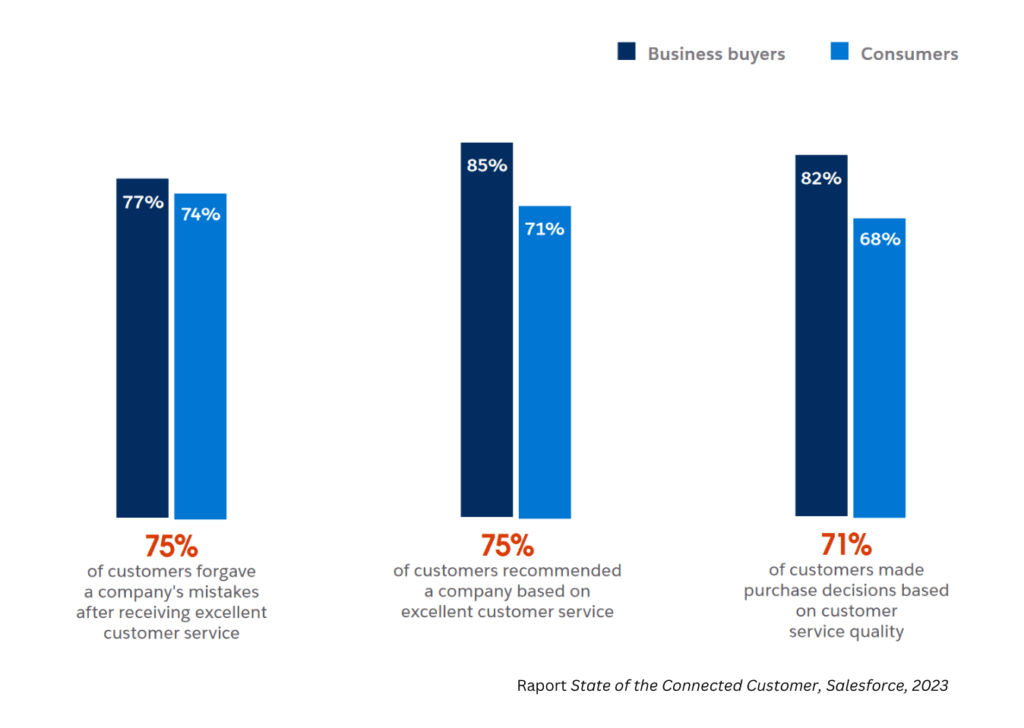
Language schools dedicate a lot of energy and commitment to acquiring new students. They expand their offerings, update their websites, create marketing strategies, and increasingly engage in social media.
But what about the current students? It is the loyalty of students in a language school that forms the foundation of its long-term success. After all, no one treats their language school as a seasonal whim, right? Let’s take a look at practical strategies that will allow your language school to gain dedicated students for years.
What will you find in this article?
- Why is student loyalty in a language school crucial?
- How to build student loyalty in 7 steps?
- Summary – student loyalty in a language school
Why is student loyalty in a language school crucial?
You probably know that acquiring a new student at a language school can cost up to five times more than retaining an existing one. Loyal students not only regularly renew their courses, but they also become brand ambassadors, recommending the school to friends and family.
Customer loyalty impacts nearly all indicators crucial to running a language school.
New students are, of course, important for the growth of an educational business, but acquiring them usually consumes much more time and financial resources than maintaining those already enrolled. Not to mention the value and satisfaction derived from building long-term relationships.
What else can you gain by focusing your attention on your current students?
Business aspects
- Revenue predictability – loyal students ensure a stable and predictable revenue stream, facilitating better financial planning and investments.
- Operational cost optimization – regular students do not require additional level tests, system onboarding, or familiarization with the methodology.
- More efficient group and schedule planning – understanding retention levels allows for more accurate predictions of continuing students and more efficient group planning.
- Cross-selling opportunities – loyal students are more likely to opt for additional services, such as specialized courses, exams, or materials.
Brand image aspects
- Referral marketing – satisfied, loyal students become brand ambassadors, recommending the school to friends and family.
- Competitive advantage – a high retention rate is a strong differentiator from competitors and proof of service quality.
- Community building – regular students create a community and culture within the school, positively impacting the experience of all students.
Operational aspects
- Opportunity for offer improvement – long-term students provide valuable feedback that helps enhance the teaching program.
- Resilience to market crises – schools with high retention rates better withstand seasonal market fluctuations and economic crises due to their stable customer base.

How to build student loyalty in a language school in 7 steps?
1. Personalization in a language school
Personalizing the educational experience is one of the most effective ways to build long-term student loyalty.
In an era where standardized language courses are becoming more common and similar to each other, it is the individual approach that can become a language school’s main distinguishing factor and the reason why students decide to continue their education for many semesters.
How can you implement personalization elements in your language school? Here are a few examples:
- Introduce short diagnostic surveys at the beginning of the course, assessing not only language level but also motivations and preferences.
- Create a library of additional thematic materials that instructors can use for different student profiles.
- Utilize modern e-learning platforms that allow for the introduction of interesting elements into standard lessons.
REMEMBER!
Personalization addresses the fundamental need of every learner – to be noticed and treated as an individual with unique needs, rather than an anonymous part of a group. When a student feels that the school and the instructor truly understand their goals, learning style, and interests, a stronger emotional bond is built, significantly reducing the likelihood of dropping out.
2. Build a community around your language school
People stay where they feel they belong. A language school is not just a place for learning, but potentially a space for building relationships and shared experiences. Loyalty is deeply rooted in emotions. And of course, learning itself can provide them, but the things that happen beyond the routine are what stick in our memories the most.
Consider what would work well at your school. Maybe an event with an inspiring guest, monthly coffee chats, or watching a game together? Such events can truly build a strong bond.
How to build a community of students centered around your language school?
- Organize regular integration events focused on language and culture (movie nights, culinary, literary events).
- Create a private social media group for students where they can communicate in a foreign language.
- Invite native speakers or experts in fields of interest to your students for meetings.
3. Appreciate and reward progress
Language learning is a process that requires consistency and patience. Systematic appreciation of students’ progress and achievements builds positive associations with the school and motivates them to continue learning in subsequent semesters.
Perhaps internal contests with symbolic prizes or publishing students’ successes on social media (with their consent, of course) will turn out to be a great idea for building relationships?
4. Proactively manage problems and gather feedback
Dissatisfied students rarely complain directly – they simply do not renew the course. Proactively identifying and resolving issues can significantly increase retention and implement appropriate actions.
REMEMBER!
Contrary to popular belief, the main factor causing withdrawal from language courses is not their price! If a student sees real progress in learning, perceives practical application of the acquired knowledge, and feels satisfaction from the educational process, the price of the course becomes secondary. However, even the lowest price won’t retain a student who doesn’t see tangible results from their learning.
Regular satisfaction surveys and gathering feedback from students is key to improving your educational offer. Remember to:
- regularly monitor student engagement and satisfaction indicators,
- conduct regular surveys in your language school,
- organize staff meetings dedicated to analyzing feedback and improving quality,
- quickly respond to reported issues and inform students about implemented changes.
Find more on this topic in the article, how to measure and improve customer satisfaction in a language school?
5. Respond to reviews and opinions
Everyone wants to have as many positive reviews about their school as possible. A common and perfectly justified initiative is to remind students not to hesitate to evaluate both the language school and the results of the courses.
What to do when such a review appears? You should always respond to a review, regardless of what it says. In this way, you show that you value your students’ opinions.
Of course, it’s also worth considering that among the positive reviews, there may also be unfavorable comments. Click and read, how to deal with negative reviews in a language school.
6. Use a CRM system in your language school
This system not only allows you to collect information such as communication and transaction history but also enables you to personalize marketing messages.
With the data collected there, you can:
- tailor promotional offers and product recommendations that a particular student might be especially interested in,
- predict students’ needs and take actions that significantly increase retention.
In this context, an extremely important aspect of maintaining a long-term relationship with the client is to offer them the opportunity to continue their studies at the school when the current course is coming to an end. By doing so, you significantly facilitate the decision-making process – the student simply needs to choose a preferred date from the proposals.
Offer students the opportunity to continue their studies! Check out how the course continuation in LangLion works – the only language school management system on the market, dedicated exclusively to language schools.

7. Customer service in language schools is fundamental
Language schools are considering whether to raise prices, while most survey respondents claim they would pay more for a service if they had a guarantee that they would receive the highest quality.
Look at the survey below. As many as 75% of respondents forgive a company minor slip-ups if the service is of the highest standard, and 71% make purchasing decisions based on its quality.
While excellent teaching methodology and effective materials are essential, it is often the everyday interactions and experiences with the school staff that determine whether a student decides to continue their education at a given institution.

Want to know more? Read the article on effective customer service in a language school!
Summary – student loyalty in a language school
Building student loyalty should not be an ad hoc activity but a strategic goal embedded in the DNA of the language school. It requires a holistic approach – from personalized teaching, community building, appreciating progress, ensuring continuity, leveraging technology, managing issues, to building personal relationships.
Remember that building loyalty is a continuous process that requires consistent actions and regular evaluation. However, this investment pays off multiple times, creating a foundation for the long-term success of your language school.
Start today by learning how to track loyalty and satisfaction with just one simple, yet powerful indicator! Read our article: “NPS: how to survey customer satisfaction with a single indicator?”
